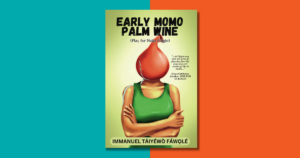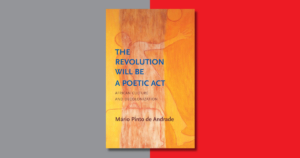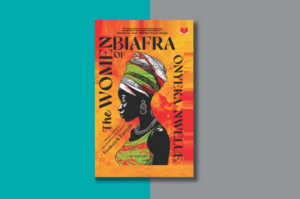
Chapter 5
The radio announces: A Black man was found dead in Geneva.
Twenty, maybe even forty-something. He was bloated from the water so they couldn’t tell his exact age.
It is a week into the opening and the best night they’ve had. The news plays quietly beneath the chatter of their diners.
Covered in layers of dark soil from the Arve river’s shore.
There is the pattering of dancing feet, the squeaking of the front door as more people enter.
Six foot three . . . No ID . . . A single silver bracelet corroding on his wrist.
The story is heard by each woman at a different moment as they work the crowded dining room floor.
Their panic moves through the room without the patrons noticing, like a stench overpowered by a stream of good aromas. The mountain dwellers are busy letting their guards down, smearing tomato jam and garlic on bread that is fresh, while more of it rises under checkered towels over the raging hearth. This is all to say that they wouldn’t have noticed a thing if Bonnie had not screamed.
The African women crack jokes to keep the diners cool. They migrate to the kitchen slowly but all at once, bumping into each other along the way. Sokhna spills yassa on a baby’s bald head, the dishwasher scorches the town’s banker with palm oil, a carafe of bissap smashes on the floor.
They find Bonnie in the kitchen, desperately twisting the dials on the radio for a clearer sound. Her frantic tuning only makes for more static, blurring out the report. Sokhna snatches the radio from her, tries her hand at tuning to no avail.
“Get Mama’s radio! Go!” Sokhna shouts at the dishwasher girl, who runs across the hall to retrieve it. Marie notes how Bonnie shakes and tries to be gentle with her, pulling her to a bench against the wall. Bonnie flinches with each buzz of static, her arms wrapped tight around her body as she tries hard to breathe.
The women huddle around the radio, still trying to make out the report. They shush one another and shut the windows to block out the noise of diners driving in and out of the yard. Their ears are so close to the tiny speakers that they are skin to skin, and, in feeling the heat of each other’s flesh, the fear and sweat, they all become more afraid. The chatter in the crowded dining room only seems to get louder, the laughter reaching a high-pitched shrill that makes Marie throw the kitchen door open. She yells into the dining room.
“Shut up! Please!”
Before the door swings closed again, Bonnie notices a bread roll fall from a woman’s mouth, stunned stiff by Marie’s command.
“Marie!” Mama exclaims, entering the kitchen last, hands holding an empty tray and streaked with peanut sauce from an order of maafe. She puts everything down and grabs her by her ear.
“Foog naa ne Mansour lañuy wax.” I think they’re talking about Mansour, Sokhna warns Mama.
Mama releases Marie.
The dishwasher girl finally returns with the good radio, her head down. “It’s over,” she says sullenly.
The women watch Mama for a cue, a directive on what to do next. But Mama will not meet their eyes. She wanders to the pot of frying fish, uncovers it, muttering quietly that they should know better, that covering the fish while it fries will make it soggy. When two of the women start sniffling, it gives the others permission, and soon the room is heavy with sobbing and moans of despair.
“Put your hands in cold water when you’re chopping onions,” Mama says to no one in particular, as if that is the cause of their tears.
The only place for peace in this house is out in the horse shed. Mama goes there most mornings to empty her mind. This evening, after calming down the women and ending the night’s service, she goes out to feel the chill of the night air. As she settles herself, Mama thinks a familiar thought: This house will fall down. And I will go with it.
She said it every time a doorknob dropped to the floor or when another light bulb burned out; when the carrots choked the pipes out in the yard and the sink water turned orange; when mice invaded the rice bags in the basement and dropped dead from Bacillus cereus a week later.
The first step toward disaster had been the arrival of Bonnie. Prior to this, all Mama knew of Black Americans was what she’d gathered from dubbed episodes of Amos ’n’ Andy, American Bandstand, or sometimes a news program. She knew that women marched beside their men in a fight for rights. Some were good singers. Some were ignorant, others glamorous, others were lewd. Once or twice, she’d seen her own face mirrored in Aretha Franklin’s, but she said and thought no more about it.
What surprised her most about Bonnie was the way she thought the world of herself. Mansour thought the world of her too. Mama had yet to discover why. Bonnie seemed to be such a strange choice.
He’d had many girls around before. Mama had loved Amalia, his last girlfriend, most of all. She was the one she’d thought he should marry. A broad-legged, beaming Italian girl he’d met in Paris, who knew to take off her shoes at the front door and who could rattle off four hundred years of her ancestry in the time it took to plait her hair. All blood is ancient, handed down, borrowed for a lifetime. Nobody’s blood is new, nobody’s life is their own, Amalia had said in response to Mansour’s passionate soliloquy about individuality.
Amalia knew where her blood had come from, all the way back to the beginning of things. She was pure nobility, just like Mama. So they talked heritage. Long nights swatting away the smoke drifting off Mama’s grill, the noise of the streets drifting in, swapping stories of forebearers, men and women long gone who’d made buildings and dug wells and gave wisdom that was still at work in the world.
Mansour had found another noble, an equal, in Amalia, so why did he now want to be with a ghost?
Still, Mama has worried about Bonnie incessantly. Lately she’s been thinking that the old roof will surely collapse into the attic and strike the girl and unborn child. Half of the mansion’s thirteen rooms are uninhabitable due to fallen ceilings and mold and God knows what else. She can’t imagine a time when she’ll have the means to restore it all. In the meantime, she’s deemed more than half of the house officially off-limits.
She had no choice after the dishwasher girl wandered out to the east wing and found a man squatting there. A wood-carver. He’d done a beautiful job with the mantle and bedposts of the room he’d chosen. He tried to bargain with them, first with labor and then with good Catholic prayers, promising them that as a former Latin scholar, he was privy to special words that could get them into heaven even though they didn’t have souls—a conclusion he’d likely come to from the propaganda defaming the Black soldiers moving about Europe in the Second World War. These pamphlets, for many of the elder villagers, showed the only Black faces they’d ever seen, before now.
Even here in the horse shed, Mama can see that the beams are rotting and liable to collapse. She grips her knees and notices the lightness of her skin, worries again that she is losing the pigmentation on her hands, even though the doctor told her that she was perfectly healthy, that her skin was only adjusting to the years she’s spent on a colder continent. She works hard to think of anything but Mansour.
In the end, I didn’t save him. Coming here didn’t save him.
But they cannot call the police. It could reveal Mama’s illegal status: a sponsorship from a job she’d been fired from over a decade before, the immigration applications she’d filed but that had been lost in bureaucratic wastelands. The rules of permanent citizenship seem to change with the seasons, and her temporary status—which, in her first few years in Europe had been a tremendous source of anxiety—soon faded into the background. She’d long learned to live beside impending disaster. Life meant daily triumph or defeat. She stayed alert and ready to move.
Mama had once been a twin, her sister disappearing in the wake of a storm. The day she lost her, Mama started a story in her mind, a life for her twin that ran parallel to her own. The story was now almost two decades old. In Mama’s mind, Kiné was married and had children. She owned her own restaurant (not as nice as Mama’s) in a small but lovely building in Dakar. Her restaurant was shrouded by bushes of limes—her favorite seasoning—and she sold soursop juice in glass bottles. Kiné had witnessed the independence of their country; she had watched the French run out of the Presidential Palace.
Those first years in Europe, Mama had written her sister letters, asking after these imagined life events as if they were true. She wrote in cursive, asking Kiné to tell her what revolution and childbirth felt like.
It’s been ten years since her last letter. The letters she drafted and redrafted until there were no blotches or marks, letters for which she walked the five miles to the post office, pretending to mail them. Pretending so much so that she believed her own lie.
Tonight, there is pen and paper in the horse shed. And there is news that Kiné must know: Mansour is missing. And though she will write this letter because she cannot bear this news alone, Mama tells herself that she is only writing this because Kiné, Mansour’s real mother, deserves to know.
***
Order They Dream in Gold here: Amazon | Bookshop
Excerpt from THEY DREAM IN GOLD published by Zando – SJP Lit. Copyright © 2024 by Mai Sennaar.









COMMENTS -
Reader Interactions